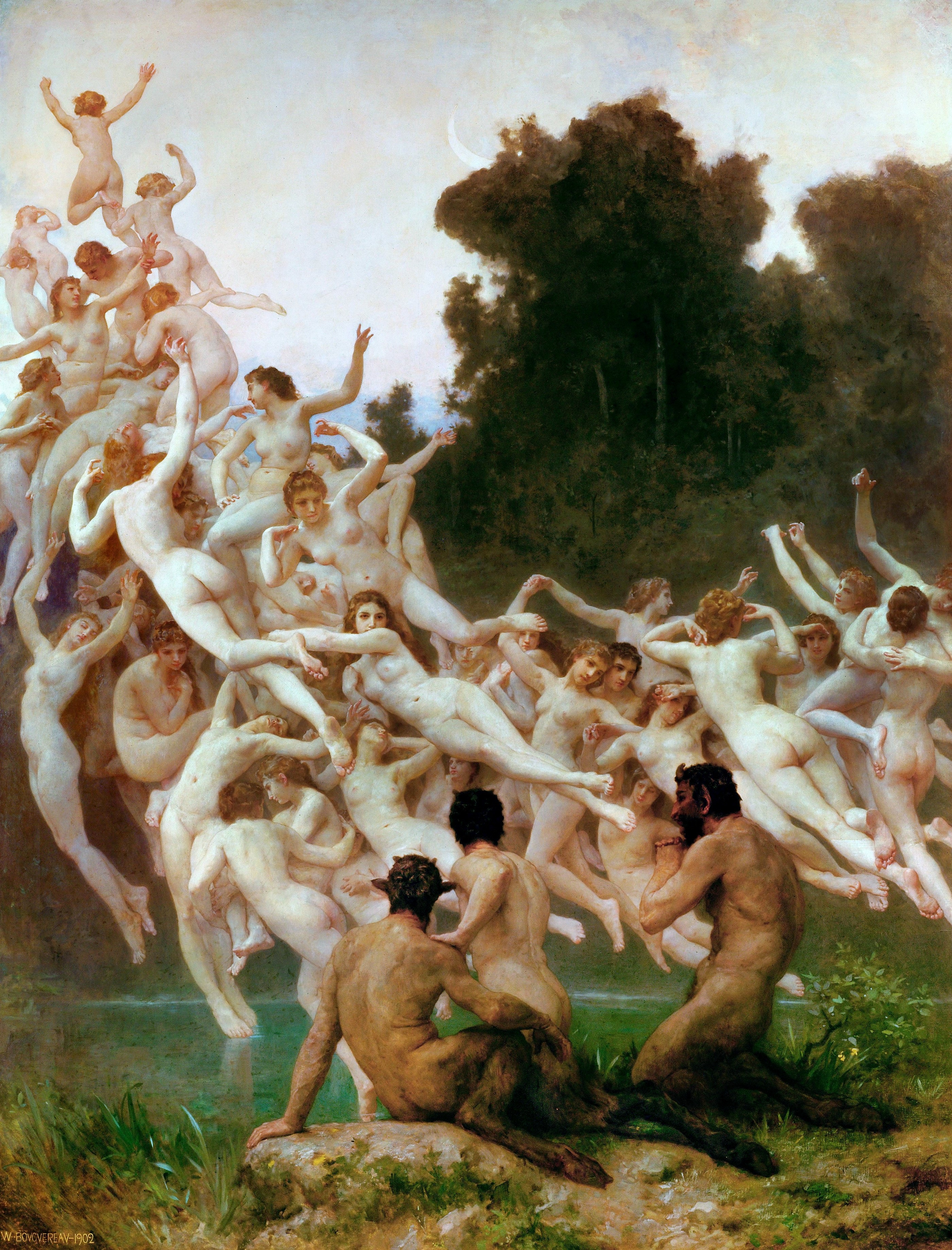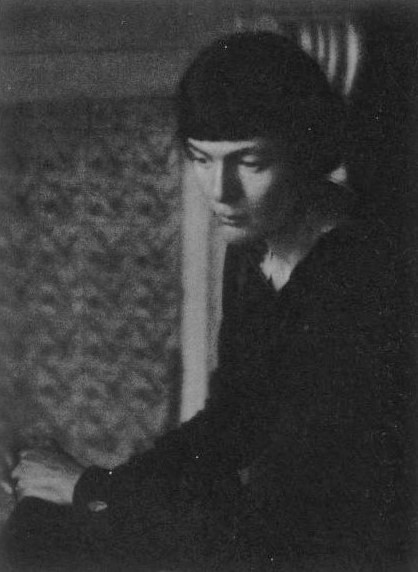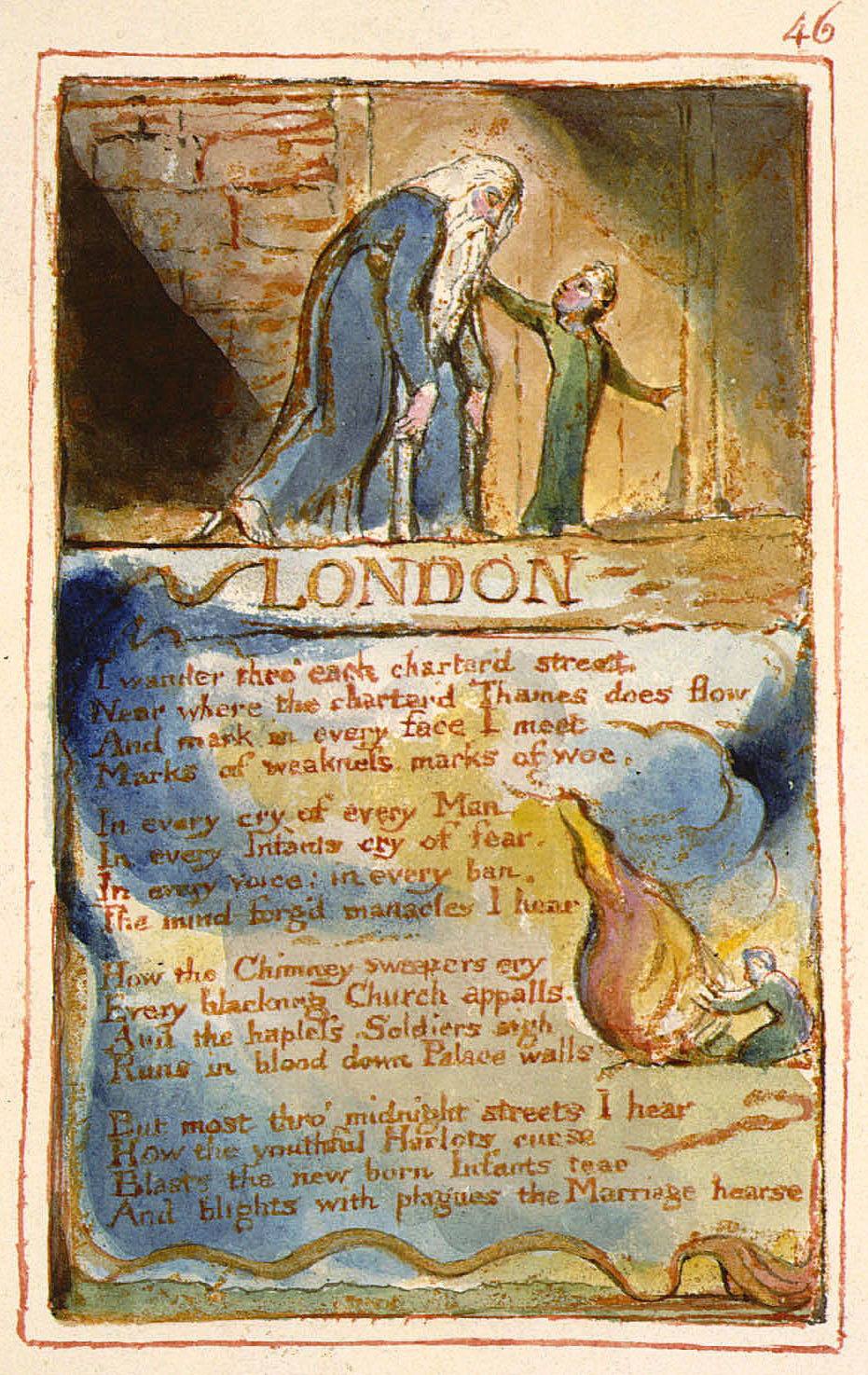|
Oread (poem)
"Oread" is a poem by Hilda Doolittle, originally published under the name H. D. Imagiste. It is one of her earliest and best-known poems, and was first published in the founding issue of ''BLAST'' on 20 June 1914. The title ''Oread'' (''cf.'' Oread) was added after the poem was first written, to suggest that a nymph was ordering up the sea. Text :Whirl up, sea— :whirl your pointed pines, :splash your great pines :on our rocks, :hurl your green over us, :cover us with your pools of fir. "Oread" as Imagist poem "Oread" may serve to illustrate some prominent features of Imagist poetry. Rejecting the rhetorics of Late Romanticism and Victorianism, the Imagists aimed at a renewal of language through extreme reduction. This reduction is what Ezra Pound had in mind, when he wrote, counseling future poets: "use no superfluous word, no adjective, which does not reveal something".Pound, Ezra.A Few Don'ts by an Imagiste Poetry Foundation. Retrieved 4 June 2022 In this po ... [...More Info...] [...Related Items...] OR: [Wikipedia] [Google] [Baidu] |
Hilda Doolittle
Hilda Doolittle (September 10, 1886 – September 27, 1961) was an American modernist poet, novelist, and memoirist who wrote under the name H.D. throughout her life. Her career began in 1911 after she moved to London and co-founded the avant-garde Imagist group of poets with American expatriate poet and critic Ezra Pound. During this early period, her minimalist free verse poems depicting Classical motifs drew international attention. Eventually distancing herself from the Imagist movement, she experimented with a wider variety of forms, including fiction, memoir, and verse drama. Profoundly affected by her experiences in London during the Blitz, H.D.'s poetic style from World War II until her death pivoted towards complex long poems on esoteric and pacifist themes. H.D. was born in Bethlehem, Pennsylvania, to wealthy and educated parents who relocated to Upper Darby in 1896. Discovering her bisexuality she had her first same-sex relationship while attending B ... [...More Info...] [...Related Items...] OR: [Wikipedia] [Google] [Baidu] |
BLAST (magazine)
''Blast'' was the short-lived literary magazine of the Vorticist movement in Britain. Two editions were published: the first on 2 July 1914 (dated 20 June 1914, but publication was delayed)Black (2004), p. 100 and featured a bright pink cover, referred to by Ezra Pound as the "great MAGENTA cover'd opusculus"; and the second a year later on 15 July 1915. Both editions were written primarily by Wyndham Lewis.Pfannkuchen (2005) The magazine is emblematic of the modern art movement in England, and recognised as a seminal text of pre-war 20th-century modernism. The magazine originally cost 2/6. Background When the Italian futurist Filippo Tommaso Marinetti visited London in 1910, as part of a series of well-publicised lectures aimed at galvanizing support across Europe for the new Italian avant-garde, his presentation at the Lyceum Club, in which he addressed his audience as "victims of ... traditionalism and its medieval trappings", electrified the assembled avant-gard ... [...More Info...] [...Related Items...] OR: [Wikipedia] [Google] [Baidu] |
Oread
In Greek mythology, an Oread (; grc, Ὀρειάς, Oreiás, stem grc, Ὀρειάδ-, Oreiád-, label=none, la, Oreas/Oread-, from grc, ὄρος, , mountain, label=none; french: Oréade) or Orestiad (; grc, Ὀρεστιάδες, Orestiádes, label=none) is a mountain nymph. Oreads differ from each other according to their dwelling: the Idaeae were from Mount Ida, Peliades from Mount Pelion, etc. Myths associated the Oreads with Artemis, since the goddess, when she went out hunting, preferred mountains and rocky precipices. The generic term "oread" itself appears to be Hellenistic (first attested in the ''Epitaph of Adonis'' ( gr , Ἐπιτάφιος Ἀδώνιδος) of Bion of Smyrna, ) and thus post-Classical.Henry George Liddell, Robert Scott, ''A Greek-English Lexicon'' ''s.v.'text at Perseus project/ref> List of Oreads The number of Oreads includes but is not limited to: Honours * Oread Institute, a former women's college in Worcester, Massachusetts ** ... [...More Info...] [...Related Items...] OR: [Wikipedia] [Google] [Baidu] |
Nymph
A nymph ( grc, νύμφη, nýmphē, el, script=Latn, nímfi, label=Modern Greek; , ) in ancient Greek folklore is a minor female nature deity. Different from Greek goddesses, nymphs are generally regarded as personifications of nature, are typically tied to a specific place or landform, and are usually depicted as maidens. They were not necessarily immortal, but lived much longer than human beings. They are often divided into various broad subgroups, such as the Meliae (ash tree nymphs), the Dryads (oak tree nymphs), the Naiads (freshwater nymphs), the Nereids (sea nymphs), and the Oreads (mountain nymphs). Nymphs are often featured in classic works of art, literature, mythology, and fiction. Since the Middle Ages, nymphs have been sometimes popularly associated or even confused with fairies. Etymology The Greek word has the primary meaning of "young woman; bride, young wife" but is not usually associated with deities in particular. Yet the etymology of the noun rem ... [...More Info...] [...Related Items...] OR: [Wikipedia] [Google] [Baidu] |
Poetry Foundation
The Poetry Foundation is an American literary society that seeks to promote poetry and lyricism in the wider culture. It was formed from ''Poetry'' magazine, which it continues to publish, with a 2003 gift of $200 million from philanthropist Ruth Lilly. According to the foundation's website, it is "committed to a vigorous presence for poetry in our culture. It exists to discover and celebrate the best poetry and to place it before the largest possible audience." In partial furtherance of this objective, the foundation runs a blog called ''Harriet''. Poets who have blogged at ''Harriet'' on behalf of The Poetry Foundation include Christian Bök, Stephanie Burt, Wanda Coleman, Kwame Dawes, Linh Dinh, Camille Dungy, Annie Finch, Forrest Gander, Rigoberto González, Cathy Park Hong, Bhanu Kapil, Ange Mlinko, Eileen Myles, Craig Santos Perez, A.E. Stallings, Edwin Torres, and Patricia Smith. In addition, the foundation provides several awards for poets and poetry. It also ... [...More Info...] [...Related Items...] OR: [Wikipedia] [Google] [Baidu] |
Imagist
Imagism was a movement in early-20th-century Anglo-American poetry that favored precision of imagery and clear, sharp language. It is considered to be the first organized modernist literary movement in the English language. Imagism is sometimes viewed as "a succession of creative moments" rather than a continuous or sustained period of development. The French academic René Taupin remarked that "it is more accurate to consider Imagism not as a doctrine, nor even as a poetic school, but as the association of a few poets who were for a certain time in agreement on a small number of important principles".Taupin, René (1929). ''L'Influence du symbolism francais sur la poesie Americaine (de 1910 a 1920)''. Paris: Champion. Translation (1985) by William Pratt and Anne Rich. New York: AMS. The Imagists rejected the sentiment and discursiveness typical of Romantic and Victorian poetry. In contrast to the contemporary Georgian poets, who were generally content to work within that trad ... [...More Info...] [...Related Items...] OR: [Wikipedia] [Google] [Baidu] |
Ezra Pound
Ezra Weston Loomis Pound (30 October 1885 – 1 November 1972) was an expatriate American poet and critic, a major figure in the early modernist poetry movement, and a fascist collaborator in Italy during World War II. His works include ''Ripostes'' (1912), ''Hugh Selwyn Mauberley'' (1920), and his 800-page epic poem, '' The Cantos'' (c. 1917–1962). Pound's contribution to poetry began in the early 20th century with his role in developing Imagism, a movement stressing precision and economy of language. Working in London as foreign editor of several American literary magazines, he helped discover and shape the work of contemporaries such as T. S. Eliot, Ernest Hemingway, and James Joyce. He was responsible for the 1914 serialization of Joyce's '' A Portrait of the Artist as a Young Man'', the 1915 publication of Eliot's " The Love Song of J. Alfred Prufrock", and the serialization from 1918 of Joyce's '' Ulysses''. Hemingway wrote in 1932 that, for poets born in ... [...More Info...] [...Related Items...] OR: [Wikipedia] [Google] [Baidu] |
Anaphora (rhetoric)
In rhetoric, an anaphora (, "carrying back") is a rhetorical device that consists of repeating a sequence of words at the beginnings of neighboring clauses, thereby lending them emphasis. In contrast, an epistrophe (or epiphora) is repeating words at the clauses' ends. The combination of anaphora and epistrophe results in symploce. Functions Other than the function of emphasizing ideas, the use of anaphora as a rhetorical device adds rhythm to a word as well as making it more pleasurable to read and easier to remember. Anaphora is repetition at the beginning of a sentence to create emphasis. Anaphora serves the purpose of delivering an artistic effect to a passage. It is also used to appeal to the emotions of the audience in order to persuade, inspire, motivate and encourage them. In Dr. Martin Luther King Jr.'s famous "I Have a Dream "I Have a Dream" is a public speech that was delivered by American civil rights activist and Baptist minister, Martin Luther King&nbs ... [...More Info...] [...Related Items...] OR: [Wikipedia] [Google] [Baidu] |
Epistrophe
Epistrophe ( el, ἐπιστροφή, "return") is the repetition of the same word or words at the end of successive phrases, clauses or sentences. It is also known as epiphora and occasionally as antistrophe. It is a figure of speech and the counterpart of anaphora. It is an extremely emphatic device because of the emphasis placed on the last word in a phrase or sentence. Platonic epistrophe Greek epistrophe: "a word coined by Plato as a goal of philosophical education and the term adopted by early Christians for conversion". Examples * "Where affections bear rule, their reason is subdued, honesty is subdued, good will is subdued, and all things else that withstand evil, for ever are subdued." ''— Thomas Wilson'' * "... this nation, under God, shall have a new birth of freedom—and that government of the people, by the people, for the people, shall not perish from the earth." ''— Abraham Lincoln in the Gettysburg Address'' * "When I was a child, I spoke as ... [...More Info...] [...Related Items...] OR: [Wikipedia] [Google] [Baidu] |
1915 Poems
Events Below, the events of World War I have the "WWI" prefix. January *January – British physicist Sir Joseph Larmor publishes his observations on "The Influence of Local Atmospheric Cooling on Astronomical Refraction". *January 1 ** WWI: British Royal Navy battleship HMS ''Formidable'' is sunk off Lyme Regis, Dorset, England, by an Imperial German Navy U-boat, with the loss of 547 crew. **Battle of Broken Hill: A train ambush near Broken Hill, New South Wales, Australia, is carried out by two men (claiming to be in support of the Ottoman Empire) who are killed, together with 4 civilians. * January 5 – Joseph E. Carberry sets an altitude record of , carrying Capt. Benjamin Delahauf Foulois as a passenger, in a fixed-wing aircraft. * January 12 ** The United States House of Representatives rejects a proposal to give women the right to vote. ** '' A Fool There Was'' premières in the United States, starring Theda Bara as a ''femme fatale''; she quickly becomes one of ... [...More Info...] [...Related Items...] OR: [Wikipedia] [Google] [Baidu] |







